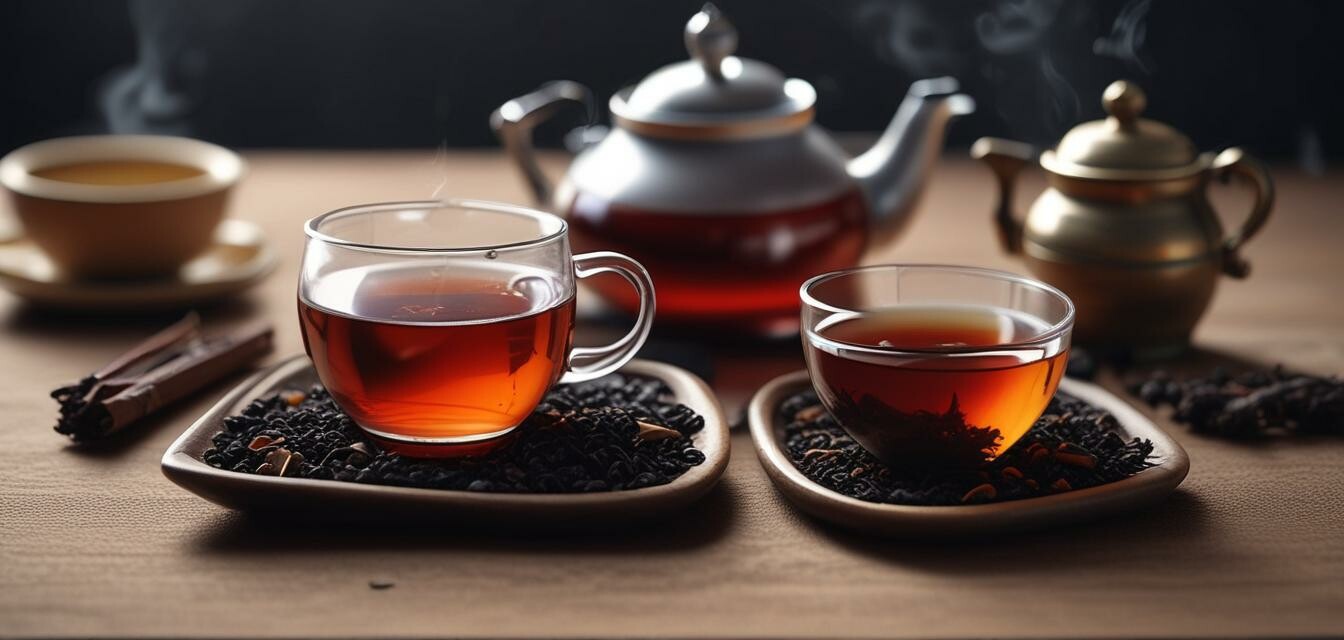
How to Choose the Best Black Tea for Brewing
Key Takeaways
- Understand the different types of black tea.
- Identify flavor profiles and characteristics.
- Learn essential brewing techniques for optimal flavor.
- Explore storage tips for maintaining freshness.
- Choose reputable sources for purchasing premium black tea.
Choosing the finest black tea can enhance your brewing experience and elevate your daily routine. With a rich variety of flavors, aromas, and origins available, navigating the vast options can become overwhelming. This guide will help you make informed decisions to find the best black tea for your unique tastes.
Understanding different types of black tea
Black tea is categorized based on its origin, processing methods, and flavor profiles. Here are some prominent varieties:
| Type of Black Tea | Origin | Flavor Notes |
|---|---|---|
| Assam | India | Malty, brisk, spicy |
| Darjeeling | India | Floral, fruity, delicate |
| Ceylon | Sri Lanka | Citrusy, bright, lively |
| Keemun | China | Rich, smoky, wine-like |
| English Breakfast | Blend (various origins) | Full-bodied, robust |
Flavor profiles and characteristics
Understanding the flavor profiles of black tea can significantly impact your brewing experience. Here are some flavor notes to consider:
- Malty: A sweet finish with notes of honey, often found in Assam teas.
- Fruity: A refreshing aspect commonly associated with Darjeeling.
- Smoky: A deep richness, especially in Keemun tea.
- Citrusy: Bright and lively flavors often found in Ceylon tea.
Choosing a black tea with a flavor profile that aligns with your preferences is crucial. If you enjoy stronger flavors, opt for Assam or English Breakfast. If you favor lighter tastes, Darjeeling may be an excellent choice.
Essential brewing techniques
Brewing techniques can affect the strength and taste of your black tea. Here are some tips to ensure an optimal brew:
- Water Quality: Use fresh, filtered water for the best results.
- Temperature: Heat water to 200-212°F (93-100°C) for black tea.
- Steeping Time: Steep for 3-5 minutes depending on preference.
- Tea to Water Ratio: Use 1 teaspoon of loose leaf tea per 8 oz of water.
Storage tips for freshness
Proper storage is essential to maintain the quality and flavor of your black tea. Here are some storage tips:
- Keep tea in a cool, dry place away from direct sunlight.
- Use an airtight container to prevent moisture absorption.
- Avoid storing tea in the fridge, as the moisture can degrade quality.
Where to buy premium black tea
Finding high-quality black tea is vital for the best brewing experience. Here are a few recommended approaches:
Tips for buying tea
- Visit specialty tea shops that focus on premium products.
- Check customer reviews for quality assurance.
- Consider online stores with a vast selection and good return policies.
- Explore local farmers' markets for fresh options.
Conclusion
Choosing the right black tea is an exciting journey filled with flavors and traditions. By understanding the various types, flavor profiles, and optimal brewing techniques, you can enjoy a delightful cup every time. Don’t forget to explore our complete collection of Black Tea Varieties and elevate your tea-drinking experience!
Pros
- Vast variety to choose from, catering to different tastes.
- Rich flavor profiles enhance your tea experience.
- Simple brewing techniques make it accessible for everyone.
Cons
- Can be overwhelming due to the variety.
- Quality may vary between brands and sources.